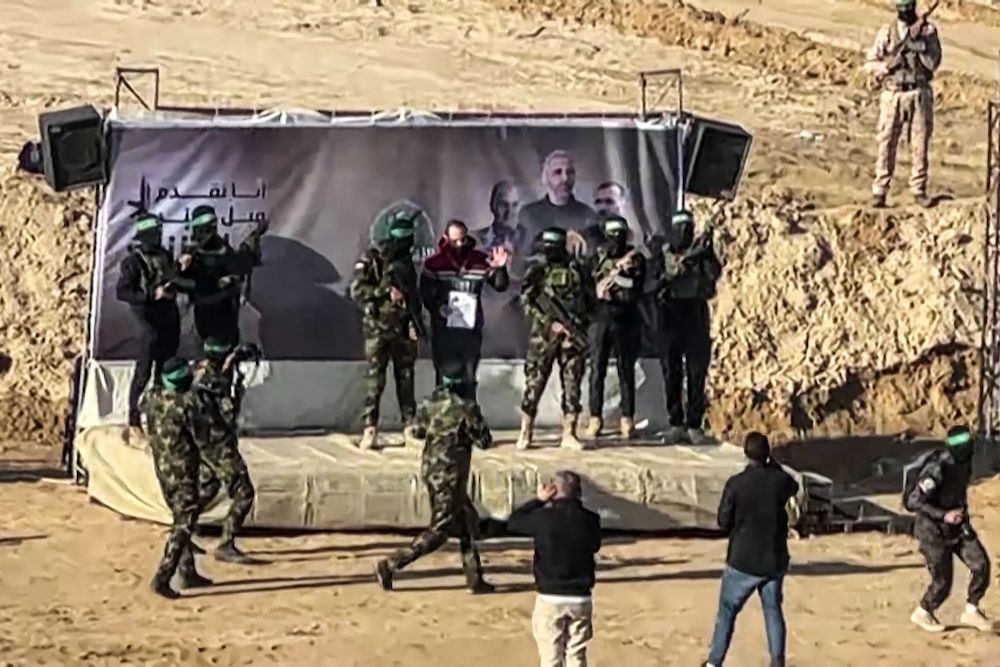ANKARA: After nationwide local elections on March 31 dealt a surprise blow to Turkiye’s ruling AK Party, eyes are now turning to the economy to see if the divided political landscape will translate into tougher economic measures in the period ahead.
The AKP came second in the polls for the first time since taking power in 2002, with most experts suggesting the results were largely driven by economic hardship, with skyrocketing inflation of nearly 70 percent and declining purchasing power.
Emre Peker, European director of political risk consultancy Eurasia Group, said President Recep Tayyip Erdogan is unlikely to sack Finance Minister Mehmet Simsek because, given the pre-election sell-off of the Turkish lira and the decline in the Turkish Central Bank’s foreign reserves, doing so would exacerbate economic pressure on Ankara.
“Nevertheless, after his election losses, Erdogan will demand to see results, especially in the fight against inflation. The picture will get worse before it gets better, with inflation expected to peak in May,” Peker told Arab News.
“Despite more than a decade of political polarization that has worked to Erdogan’s advantage, people still vote with their pockets. The AKP’s drubbing in Sunday’s election was Turkiye’s version of ‘it’s the economy, stupid’,” he added.
Central Bank reserves, excluding swap deals, are currently at minus $65 billion.
According to Peker, Erdogan’s concern over his declining political support will significantly increase the downside risks to Simsek’s ability to continue his policy of normalization, while the president will interpret voter rejection of the AKP as the cost of the policy to reduce inflation and achieve sustainable growth.
“Erdogan’s dismal electoral performance will reaffirm his need to fix the economy and increase pressure on Simsek to deliver results,” he said.
Simsek and his team have worked hard to normalize policy since taking office in June last year, securing significant investment pledges from the Gulf. Fitch recently upgraded Turkiye’s credit rating to B+.
Peker also noted that while Simsek and the Central Bank’s stance has won praise from foreign investors, their policies have squeezed consumer and commercial credit for many import-oriented businesses, with headline inflation rising toward 75 percent and sticky price increases in services and food hitting voters hard.
On Sunday night, shortly after the results were announced, Erdogan reiterated that the government would stick to its medium-term economic plan.
Similarly, Simsek wrote on X on April 1: “We will continue to strengthen and implement our medium-term program with determination ... We will transform the economy and increase productivity and competitiveness with the structural reforms to be implemented in line with the timetable announced in the program.”
With markets closely watching the country’s inflation performance, official inflation statistics for March will be released on April 4. The Central Bank raised its benchmark interest rate by 500 basis points to 50 per cent last month.
For Peker, Sunday’s election result will only make managing expectations more difficult, given Erdogan’s unorthodox economic views and previous policy reversals.
“Domestic and foreign investors will now be more concerned about the risk of Simsek’s ouster, which is likely to make it harder for Turkiye’s economic tsar to attract foreign investment. Erdogan is likely to continue to support Simsek’s policies in the short term, while calling for a rapid recovery,” he said.
Although Erdogan has declared 2024 the “year of retirees,” pensioners have been hit hard by the country’s economic challenges with pensions failing to keep pace with inflation and remaining below the minimum wage and hunger threshold.
The problem, however, is how the government will cope without the necessary budgetary resources. The new budget data and possible measures the Turkish authorities may take regarding government spending are also a source of concern for the markets. In the first two months of this year, the government’s budget ran a deficit of 304.5 billion lira ($9.467 billion).
Meanwhile, several of Turkiye’s industrial hubs, including Balikesir and Bursa, flipped to the opposition at Sunday’s elections.
Selva Demiralp, professor of economics at Koc University, says the opposition’s victory can be interpreted as the delayed toll of the economic crisis that came ahead of the May 2023 elections.
“The unsustainable accommodative policies masked the underlying economic problems at the time. Yet the government has run out of artillery and had to make an inevitable U-turn toward policy tightening, a move that was understandably unpopular with the public,” she told Arab News.
According to Demiralp, there were two theories as to why the AKP won the May 2023 elections.
“The first theory was that voters knew about the economic problems but believed the government could fix them, while the second theory was that voters hadn’t really felt the economic pinch yet. The local elections, 10 months later, seem to show that the second theory was right,” she said.
Investors’ sights are now on the direction of future economic policy.
Demiralp says there are two options on the table: to graciously accept the loss and fully support the current economic team, waiting for the tough medicine to work its magic until the 2028 general election, or to blame Simsek and his team for the local election defeat and replace them.
“I am leaning toward the first option because the second could spell disaster for the economy and the political cost of the disinflation program has already been paid with the local election defeat. The AKP now has four years to repair the damage from the misguided policies it has put in place. Indeed, Erdogan’s post-election speech indicated a preference for the first option,” she said.
If the election results had been more in favor of the AKP, Demiralp believes, this would have been seen as a public endorsement of its policies and no changes would have been necessary.
“However, given the apparent defeat of the AKP at the local level, even if the orthodox policies are continued, they may not be as strict to reduce the growth rate to 1.5 percent as implied in the Central Bank’s inflation report,” she said.
In an attempt to appease angry voters, she also suggests that the disinflation program could be relaxed slightly.
“As a result, inflation would be close to 50 percent and growth would be around 3 percent. If there’s no compromise on an IMF-like austerity policy, then opting for a deal with the IMF to secure funding would be a more logical option,” Demiralp added.





























